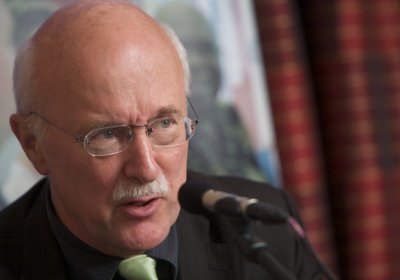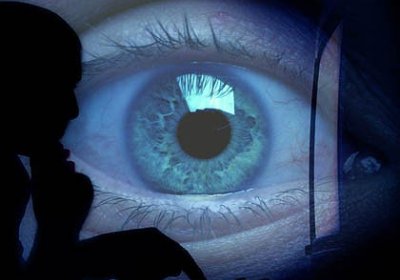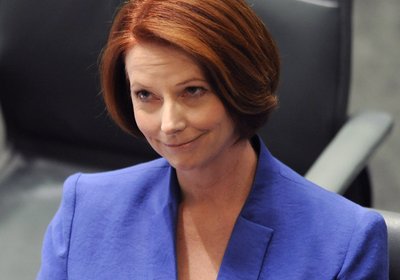Last December, I stood with supporters of WikiLeaks and Julian Assange in the bitter cold outside the Ecuadorean embassy in London. Candles were lit; the faces were young and old and from all over the world.
They were there to demonstrate their human solidarity with someone whose guts they admired. They were in no doubt about the importance of what Assange had revealed and achieved, and the grave dangers he now faced. Absent entirely were the lies, spite, jealousy, opportunism and pathetic animus of a few who claim the right to guard the limits of informed public debate.
John Pilger
A full-scale invasion of Africa is under way. The United States is deploying troops in 35 African countries, beginning with Libya, Sudan, Algeria and Niger. Reported by Associated Press on Christmas Day, this was missing from most Anglo-American media.
The invasion has almost nothing to do with “Islamism”, and almost everything to do with the acquisition of resources, notably minerals, and an accelerating rivalry with China. Unlike China, the US and its allies are prepared to use a degree of violence demonstrated in Iraq, Afghanistan, Pakistan, Yemen and Palestine.
There are awards for everyone. There are the Logies, the Commies, the Tonys, the Theas, the Millies ("They cried with pride") and now the Shammies.
The Shammies celebrate the finest sham media. "Competition for the 2013 Gold Shammy," said the panel of judges, "has been cutthroat." The Shammies are not for the tabloid lower orders. Rupert Murdoch has been honoured enough. Shammies distinguish respectable journalism that guards the limits of what the best and brightest like to call the "national conversation".
In the week Lord Leveson published almost a million words about his inquiry into the “culture, practice and ethics” of Britain's corporate press, two illuminating books about media and freedom were also published. Their contrast with the Punch and Judy show staged by Leveson is striking.
For 36 years, Project Censored, based in California, has documented critically important stories unreported or suppressed by the media most US people watch or read.
In Peter Watkins' remarkable BBC film, The War Game, which foresaw the aftermath of an attack on London with a one-megaton nuclear bomb, the narrator says: “On almost the entire subject of thermo-clear weapons, there is now practically total silence in the press, official publications and on TV. Is there hope to be found in this silence?”
The truth of this statement was equal to its irony. On November 24, 1965, the BBC banned The War Game as “too horrifying for the medium of broadcasting”.
In 1999, I travelled to Iraq with Denis Halliday, who had resigned as assistant Secretary-General of the United Nations rather than enforce a punitive United Nations embargo on Iraq.
Devised and policed by the United States and Britain, the extreme suffering caused by these “sanctions” included, according to Unicef, the deaths of half-a-million Iraqi infants under the age of five.
Ten years later, in New York, I met the senior British official responsible for the imposition of sanctions. He is Carne Ross, once known in the UN as “Mr Iraq”.
The Guardian’s description of Australia’s opposition leader Tony Abbott as “neanderthal” is not unreasonable. Misogyny is an Australian blight and a craven reality in political life. But for so many commentators around the world to describe Julia Gillard’s attack on Abbott as a “turning point for Australian women” is absurd.
Arthur Murray died the other day. I turned to Google Australia for tributes, and there was a 1991 obituary of an American ballroom instructor of the same name. There was nothing in the Australian media. The Australian newspaper published a large, rictal image of its proprietor, Rupert Murdoch, handing out awards to his employees. Arthur would have understood the silence.
Arthur Murray died the other day. I turned to Google Australia for tributes, and there was a 1991 obituary of an American ballroom instructor of the same name. There was nothing in the Australian media.
The Australian newspaper published a large, rictal image of its proprietor, Rupert Murdoch, handing out awards to his employees. Arthur would have understood the silence.
The murder of 34 miners by the South African police, most of them shot in the back, puts paid to the illusion of post-apartheid democracy and illuminates the new worldwide apartheid of which South Africa is both a historic and contemporary model.
In 1894, long before the infamous Afrikaans word foretold “separate development” for the majority people of South Africa, an Englishman, Cecil John Rhodes, oversaw the Glen Grey Act in what was then the Cape Colony.
What is the world's most powerful and violent “ism”?
The question will summon the usual demons such as Islamism, now that communism has left the stage. The answer, wrote Harold Pinter, is only “superficially recorded, let alone documented, let alone acknowledged”, because only one ideology claims to be non-ideological, neither left nor right, the supreme way. This is liberalism.
In his 1859 essay On Liberty, to which modern liberals pay homage, John Stuart Mill described the power of empire.
The ferries that ply the river west of Sydney Harbour bear the names of Australia's world champion sportswomen. They include the Olympic swimming gold-medalists Dawn Fraser and Shane Gould, and runners Betty Cuthbert and Marjorie Jackson.
- Previous page
- Page 7
- Next page









